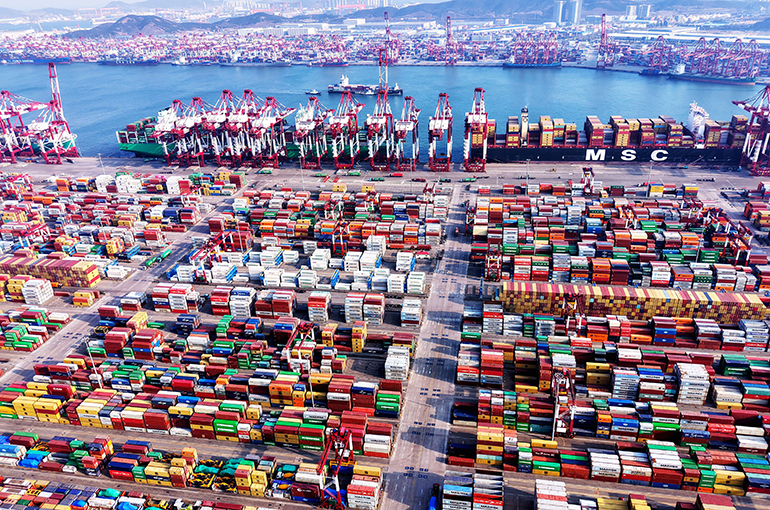 Chinese Exporters Rush to Book Cargo Space After China-US Trade Breakthrough
Chinese Exporters Rush to Book Cargo Space After China-US Trade Breakthrough(Yicai) May 14 -- A large number of Chinese exporters acted quickly after China and the United States agreed to temporarily slash their steep import tariffs, booking cargo space on ships on the very day of the announcement.
“On the afternoon of May 12 alone, several shipping firms announced that their cargo space was full,” Liu Qifeng, general manager of Southeast Logistics Vietnam's Shanghai branch, told Yicai yesterday. Inquiries and bookings that day were three to four times higher than normal, he added.
China and the US jointly announced two days ago that they have agreed to lower import tariffs on each other's goods for 90 days, committing to take action by today.
US orders have resumed, said Yang Wenjun, executive deputy GM of Shuangma Plastic Manufacturing. The supplier of kitchen utensils to Walmart among others is hurrying to make arrangements, including booking cargo space to ensure early shipments, he added.
The company's US sales accounted for about 30 percent of its total exports by volume, Yang noted, adding that in the past month, the firm suspended about 80 percent of its exports to the US because of the high tariffs.
June to September is traditionally the peak season for shipping goods to the US, Liu noted. A lot of goods have been kept on hold since April as a result of the steep border taxes, making shipping space to the US even tighter, he added.
Out of concern that tariffs may jump again after the China-US trade deal expires in 90 days, both Chinese exporters and US buyers are rushing to get goods to US ports before mid-August, according to Liu. This urgency is expected to further ramp up demand for cargo space on vessels departing from China next month and in July, he pointed out.
This means that Christmas items, which are usually shipped in later months of the year, will also have to be sent between June and July, exacerbating the already tight supply of cargo space during the period, Liu added.
Capacity has been halved since last month because of the trade war, the head of a large freight company that mainly operates China-US routes told Yicai. “Ships and containers have been transferred to other routes,” they noted, adding that even though shippers will rejig capacity to reflect the new circumstances, cargo space to the US will remain limited in the short term.
With the pickup in demand for cargo space in ships bound for the US, freight rates will likely increase soon, Wang Zhi, marketing director of Baosen Suntop Logistics Group, told Yicai. Prices are bound to rise because of the backlog of goods needing to be shipped to the US, Chen Yang, head of shipping information consulting platform Maritime Network, pointed out.
A second wave of price rises is also possible after the initial inventory clearance as buyers replenish their stocks out of concern for a possible tariff hike in the coming months, potentially further increasing congestion in the supply chain and pushing up freight costs, Chen noted.
Wang Sijie, president of overseas warehousing services provider Wini agreed, saying that some American buyers may make excessive purchases during the 90-day period to cope with the uncertainty surrounding future trade policies.
Editors: Tang Shihua, Futura Costaglione